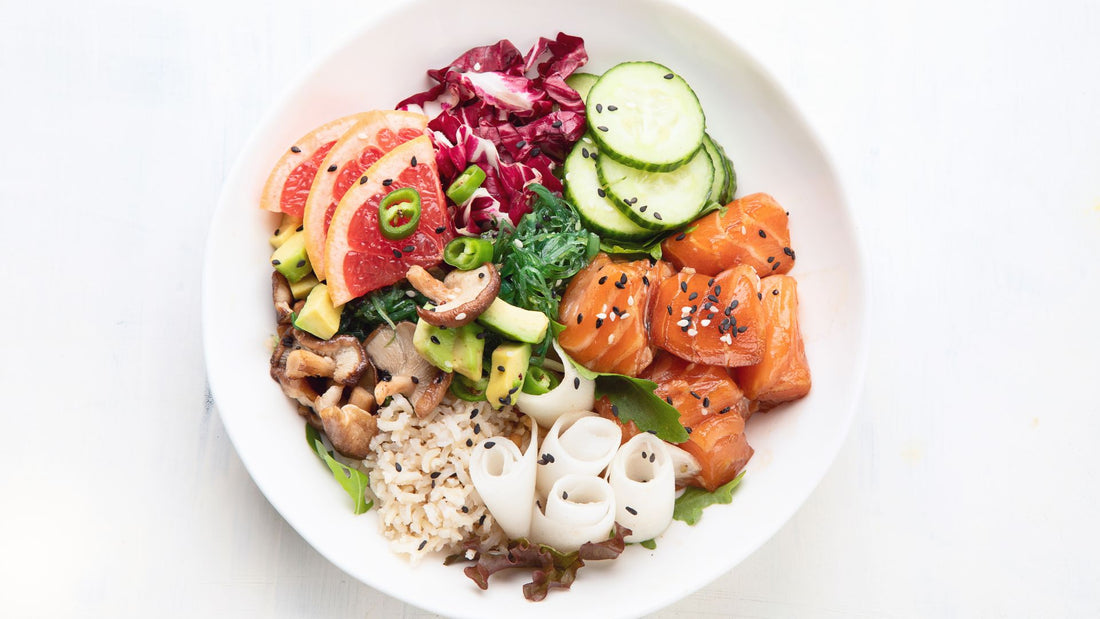Andropause, sometimes controversially referred to as the ‘male menopause’, is a condition linked to ageing and a slow and gradual decline in testosterone levels. This reduction in testosterone can lead to a collection of unwanted symptoms - typically experienced in a man’s 40s or 50s – which may include depression, lack of energy, insomnia, memory problems, lower sex drive, erectile dysfunction, extreme tiredness, irritability, grumpiness, hair thinning and weight gain1. Unlike female menopause, not all men will realise they are going through andropause (and it doesn’t usually mark the end of their reproductive years as it does for women), but understandably, the effects of andropause can significantly impact quality of life, personal and professional relationships and can potentially last years.
Whilst testosterone tends to be most commonly associated with sex drive and fertility, it is actually responsible for much more than libido and reproduction – it also fuels a man’s physical and mental energy, helps maintain muscle mass and is key in sustaining motivation, concentration and confidence. Andropause is not an illness or disease but its impact on daily life can potentially pose real challenges for men in terms of both their mental and physical health. Research from 2024 also reveals that men with lower-than-normal levels of testosterone are at a higher risk of some chronic diseases, including heart disease.2Any natural drop in testosterone can then be exacerbated by being overweight, prolonged stress, lack of sleep and taking certain medications (including some antidepressants).
Managing the symptoms of andropause effectively – and helping to maintain and balance testosterone - can involve a combination of factors from simple lifestyle changes to possibly medical interventions and, in some cases, hormone replacement. Regular exercise, managing stress effectively, getting enough sleep and eating a well-balanced diet should all help. There are also certain foods known to be particularly effective in supporting testosterone production – so ideally try to include at least some of these foods in your daily meals.
Nutritionist Helen Roach recommends 5 key foods that can help increase testosterone production:
- Oysters. Oysters actually contain more zinc per serving than any other food3 and zinc is known to contribute to the maintenance of normal testosterone levels in the blood.
- Avocados. These are an excellent source of monounsaturated fat, vitamin E and fibre and are rich in pregnenolone, a steroid hormone which acts as a precursor to testosterone production. Taking pregnenolone in supplement form has also been shown to improve mood, mild depression, tiredness, brain function and memory, all factors that can be negatively affected during andropause.4
- Salmon. This oily fish is high in a number of nutrients, including vitamin D (a vitamin that is essential for male reproductive health. Research suggests men with low vitamin D levels tend to have lower testosterone levels)5 and the mineral zinc, which helps to maintain the normal production of testosterone in the blood. Salmon is also a valuable source of protein and omega 3 fatty acids, which can help with your energy, weight maintenance and brain function.
- Mushrooms. A regular intake of mushrooms has been linked to healthier testosterone levels in men. Button mushrooms have been studied the most6 but others such as shitake and Portobello are thought to be just as beneficial. Interestingly, if you leave a mushroom in sunlight for an hour or so before you eat them, they actually become richer in vitamin D and vitamin B5; which contribute to the normal synthesis and metabolism of steroid hormones and can help with the production of testosterone.
- Broccoli and cauliflower. These vegetables are rich sources of vitamin B5 (pantothenic acid) which is responsible for the production of steroid hormones such as testosterone. Broccoli is also a potent source of magnesium which is also linked to testosterone production.7 A 2021 study8 carried out on mice who were given broccoli extract for 42 days showed a considerable improvement in testosterone levels and a rise in sperm count at the end of the trial. Of course, there is nothing to say the same improvement would be seen in men but this antioxidant-rich green leafy vegetable does potentially appear to have a beneficial effect on testosterone levels.
Getting enough testosterone-boosting zinc if you are vegetarian or vegan.
We all need a steady intake of foods containing testosterone-boosting zinc because this trace mineral is not produced naturally in the body or stored in it, so needs to be topped up regularly. Given that many of the most potent sources tend to be animal-based proteins like red meat (particularly beef and lamb), fish and seafood - and the bioavailability of it from some plant sources of zinc are lower - it has been suggested in the past that vegetarians and vegans might be at a slight disadvantage when it comes to getting enough.
Recent research, however, has shown there is little difference in the testosterone levels of male meat eaters and vegans8 and there are plenty of alternative and healthy plant-based sources including pulses (such as chickpeas, lentils, butter beans, kidney beans), oats, walnuts, cashew nuts, chia seeds, hemp seeds, pumpkin seeds and spinach so try to include as many of these in your daily diet as you can.
What else can you do to give yourself a natural testosterone boost?
Get enough sleep.
Research shows that lack of sleep can cause a significant decrease in testosterone production. One study, carried out on healthy young men, found that sleeping for five hours a night for just over one week resulted in a 10-15 % drop in testosterone, compared to when they slept for longer. Another study has shown that after just one night of sleeping 4.5 hours male participants had lower morning levels of testosterone.9 Another found that sleeping for 10 hours raised testosterone levels, compared to sleeping for around six.10 Not getting enough sleep can also lead to stress and higher levels of the stress hormone cortisol which is linked to lower levels of testosterone.11 Ideally, you should be aiming for 7-9 hours a night.
Manage stress more effectively.
None of us can avoid stress completely, but if it is chronic and prolonged it can significantly impact on hormone levels, including testosterone. In fact, evidence has shown it can reduce production at its very source – from the testes.12 Research carried out on medical students before taking an exam shows how psychological stress can lower testosterone levels.13 Exercise can help to manage stress, as can getting enough sleep but other tools that can help include stress management techniques like breathing exercises, meditation, yoga, getting outdoors and/or taking adaptogenic herbal supplements including ashwagandha. Interestingly, an eight week study from 2022 involving men given 300mg of ashwagandha twice daily showed they had increased testosterone and reported improved sexual functioning at the end of the trial.14
Exercise regularly.
Research has shown that men who exercise regularly have higher levels of testosterone than those who are sedentary15 and exercising can actually have a more positive effective on testosterone levels than simply losing weight (if you need to).16 Any exercise is beneficial but working out with weights (whether free weights, machines or your own body weight) and/or doing high intensity interval training (HIIT)17 appears even more helpful as it will help you build muscle mass and having more muscle mass has been shown to produce more testosterone. Overdoing it on the exercise front could be counter-productive, however. Elite athletes and anyone overtraining/overexerting themselves physically can put too much pressure on their body resulting in a drop in testosterone and a rise in cortisol.
Maintain a healthy body weight.
Testosterone not only impacts men’s sexual health it also influences fat distribution and muscle mass. If testosterone levels are low this puts you at an increased risk of putting on weight and developing a gut and potentially ‘man boobs’. Evidence has shown being overweight or obese seems to suppress the production of testosterone18 and fat cells lower testosterone levels by metabolising the hormone into oestrogen. In fact, one study involving over 2,000 men over 45 showed the likelihood of having low testosterone was 2.4 times higher for obese men. They were also lower in men with obesity-related conditions including type 2 diabetes and high blood pressure.19 If you are overweight or obese losing weight is one of the most beneficial things you can do to give your testosterone a boost.
Nutrient supplementation
Supplements can play a crucial role in supporting male well-being during andropause, complementing a healthy, balanced diet and lifestyle. While a nutritious diet provides the essential building blocks for overall health, certain vitamins and minerals, such as vitamin C, vitamin D, B6, and B12, along with zinc21, can be particularly beneficial during this stage of life. These nutrients help in maintaining energy levels, supporting immune function, and enhancing hormonal balance. Additionally, adaptogenic herbs like ashwagandha, Tribulus Terrestris, and Shilajit22 may help overall wellbeing during andropause. By incorporating these supplements, men may experience better management of andropause symptoms, ensuring a more comprehensive approach to health and wellness.
References
- https://www.baus.org.uk/patients/conditions/7/male_menopause_androgen_deficiency_in_the_ageing_male/
- https://www.acpjournals.org/doi/10.7326/M23-2781
- https://ods.od.nih.gov/factsheets/Zinc-HealthProfessional/
- https://www.verywellmind.com/the-lowdown-on-pregnenolone-89502
- https://pubmed.ncbi.nlm.nih.gov/30896763/
- https://pubmed.ncbi.nlm.nih.gov/11739882/
- https://pubmed.ncbi.nlm.nih.gov/20352370/
- https://pubmed.ncbi.nlm.nih.gov/33577784/
- https://link.springer.com/article/10.1007/s00345-020-03276-y
- https://pubmed.ncbi.nlm.nih.gov/22568763/
- https://pubmed.ncbi.nlm.nih.gov/25683266/
- https://link.springer.com/article/10.1007/BF01948370
- https://pubmed.ncbi.nlm.nih.gov/6348068/
- https://www.ncbi.nlm.nih.gov/pmc/articles/PMC5128352/#:~:text=Recently%2C%20research%20evidence%20suggests%20that,stress%20(such%20as%20surgery).
- https://onlinelibrary.wiley.com/doi/full/10.1002/hsr2.741
- https://pubmed.ncbi.nlm.nih.gov/22234399/
- https://www.ncbi.nlm.nih.gov/pmc/articles/PMC4706091/
- https://europepmc.org/article/med/25373470
- https://pubmed.ncbi.nlm.nih.gov/12121568/
- https://www.ncbi.nlm.nih.gov/pmc/articles/PMC1569444/
- https://www.tandfonline.com/doi/full/10.1080/13685538.2019.1573220
- https://journals.sagepub.com/doi/10.1177/1557988319835985

